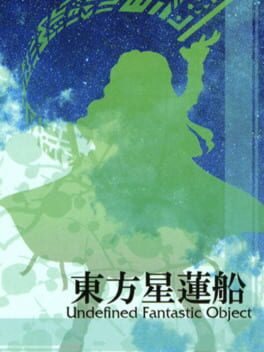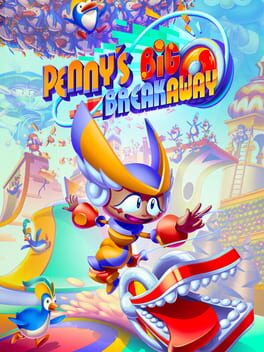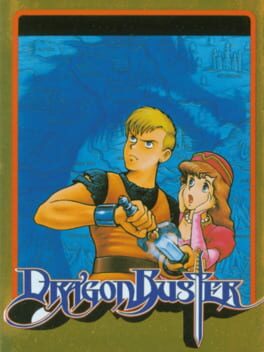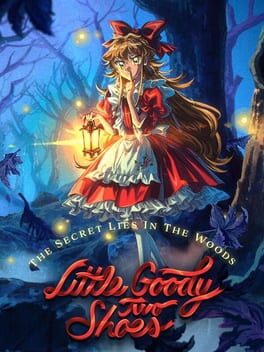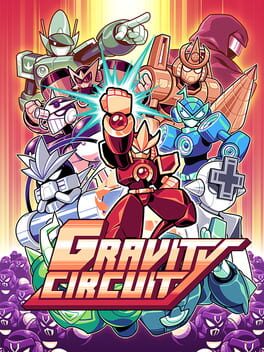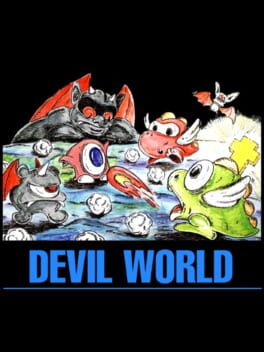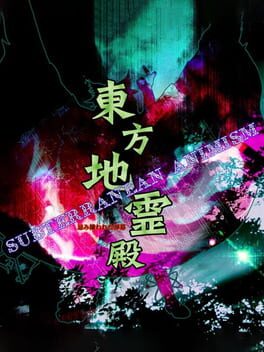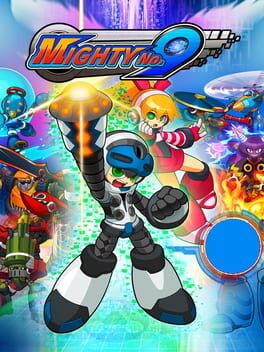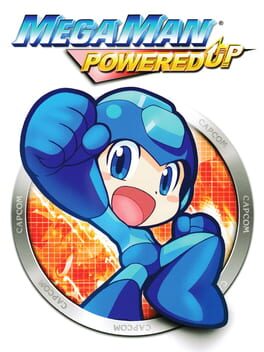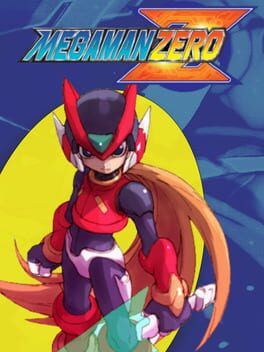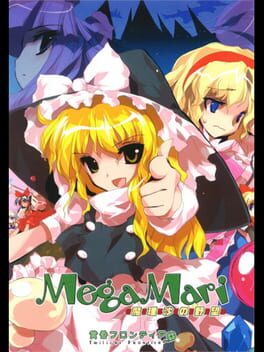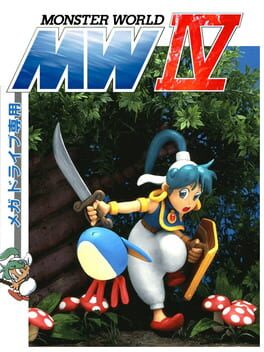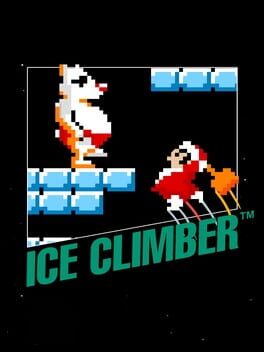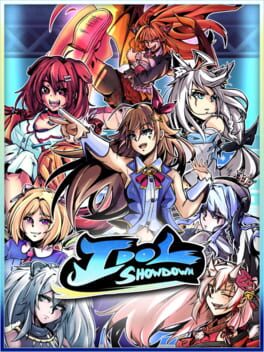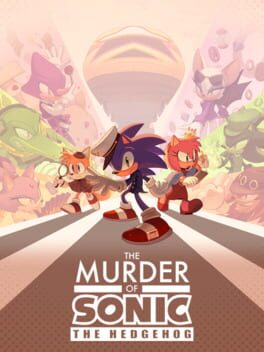UnluckyLucky
If I see one more person call the UFO system "unfair" then I will personally come to your house and force you to 1CC this game. It is now clear to me that ZUN made Touhou 13 piss easy out of spite alone.
Anyway, Touhou 12's pretty good. It's much more ambitious than its Second Windows Era predecessors with... mixed results. Touhou 10 and 11 are better games overall, but 12 hits pretty hard when it isn't pulling its punches.
Obviously, I like the UFO system. In terms of "gimmicks," they are probably the best system mechanics ZUN has ever made up to this point. Their implementation into the game encourages a lot of fundamental shoot 'em up skills: taking control of the middle of the screen, offensive bombing, smart stage routing, that kind of stuff. All of which is great! The "unfairness" complaint becomes very silly when you spend enough time in TH12 to understand that UFO's are basically entirely deterministic. Everything about their spawn conditions is static. The major difference between each run is you, the player, and when you shoot the UFO fairies down. Plus, TH12 is actually very generous with its resources, too. You can screw up quite a few UFO match-3s before things start to become problematic. It's not a perfect system--- I think it makes scoreplay too linear, and those same blue UFOs that give you points being useless for survival feel incongruent with the rest of the system. But if I--a colorblind dude--can enjoy the gimmick, then it's probably pretty chill.
The actual spellcards are where I find TH12 to be weak, though. There's some pretty cool stuff in this game. Unzan and his hitbox are awesome and I'm particularly fond of the calm and calculated way Shou's fight functions as if you're really fighting a (Buddhist) tiger. But otherwise this game's kinda boring with it, IDK. I don't have much to say about most of the other fights: they're solid but not special. This is especially damning for Byakuren who the game sets up as a bigger deal than she feels like she is, unfortunately.
The presentation in TH12 is similarly simple, but I think the game leverages it way better. The first half of the game spent in Gensoyko's skies gives the world good texture, (ala Touhou 10) and the descent into Makai is genuinely hype. I locked in immediately when I heard Fires of Hokkai play for the first time. It's easy to see why people thought this would lead into more PC-98 content returning. To treat this area from it with so much respect and then to do nothing with it would be such a tease...
Like I started with, Touhou 12's pretty good. Not my favorite game in the series-- I'm not even sure if it holds a candle to 11, honestly. But it's a fun time, and clearly shows how ZUN has improved since the early 2000s.
Anyway, Touhou 12's pretty good. It's much more ambitious than its Second Windows Era predecessors with... mixed results. Touhou 10 and 11 are better games overall, but 12 hits pretty hard when it isn't pulling its punches.
Obviously, I like the UFO system. In terms of "gimmicks," they are probably the best system mechanics ZUN has ever made up to this point. Their implementation into the game encourages a lot of fundamental shoot 'em up skills: taking control of the middle of the screen, offensive bombing, smart stage routing, that kind of stuff. All of which is great! The "unfairness" complaint becomes very silly when you spend enough time in TH12 to understand that UFO's are basically entirely deterministic. Everything about their spawn conditions is static. The major difference between each run is you, the player, and when you shoot the UFO fairies down. Plus, TH12 is actually very generous with its resources, too. You can screw up quite a few UFO match-3s before things start to become problematic. It's not a perfect system--- I think it makes scoreplay too linear, and those same blue UFOs that give you points being useless for survival feel incongruent with the rest of the system. But if I--a colorblind dude--can enjoy the gimmick, then it's probably pretty chill.
The actual spellcards are where I find TH12 to be weak, though. There's some pretty cool stuff in this game. Unzan and his hitbox are awesome and I'm particularly fond of the calm and calculated way Shou's fight functions as if you're really fighting a (Buddhist) tiger. But otherwise this game's kinda boring with it, IDK. I don't have much to say about most of the other fights: they're solid but not special. This is especially damning for Byakuren who the game sets up as a bigger deal than she feels like she is, unfortunately.
The presentation in TH12 is similarly simple, but I think the game leverages it way better. The first half of the game spent in Gensoyko's skies gives the world good texture, (ala Touhou 10) and the descent into Makai is genuinely hype. I locked in immediately when I heard Fires of Hokkai play for the first time. It's easy to see why people thought this would lead into more PC-98 content returning. To treat this area from it with so much respect and then to do nothing with it would be such a tease...
Like I started with, Touhou 12's pretty good. Not my favorite game in the series-- I'm not even sure if it holds a candle to 11, honestly. But it's a fun time, and clearly shows how ZUN has improved since the early 2000s.
If Gravity Circuit is an example of a game "not understanding the inner workings of the many things it's inspired by", then Penny's Big Breakaway is the exact opposite. If anything, this game feels like something made by game designers first, and everything else second.
This is to say: Penny's moment to moment gameplay is really good. It's an incredibly smart game from start to finish. Penny herself is up there in the list of "best controlling platforming characters." There existing an actual learning curve to effectively using the Yoyo tricks to keep your flow is shows to me that Evening Star understands the secret sauce of other high skill ceiling platformers. The combo system and focus on score attack mechanics does wonders for this game's level design and dramatically increases the depth of sections I typically would not have a second thought about. "How do I get through this efficiently?", "Should I risk getting hit and dropping my multiplier here?", etc. There's tons of performers in Penny's (being the game's theme) and you, the player, are one too. The developers ask you to step into the spotlight: "can you show us that you've got it down?"
It's funny to hear the mixed reception of this game's controls in more critical spaces online, because all the people I've seen who stuck with it ended up appreciating how Penny's plays by the end.
Almost as if game design that pushes the player to get better can be rewarding, or something...
Now, I won't boil down all (only some) of the complaints about this game into a simple "skill issue"-- it's clearly more complicated than that. The bugs, for example, are not really a complaint that can be argued against. I think some exaggerate how often and intrusive the glitches really are, but there's definitely some jank in this game. It feels bad to lose your high combo due to a physics inconsistency. I also think Penny's suffers from "bad boss fight" disease-- strange for a game that seemingly understands platformers can be satisfying without them. It especially hurts to end the game on such a "blah" note of the final boss which captures exactly none of the aspects that make the levels so fun.
Out of all the complaints I'm the most sympathetic to, though, it has to be what I've seen about the presentation. Don't get me wrong-- it's not bad at all. There's some truly good tracks and area design in this game. Tee Lopes in particular pops off for the level themes in this game. I like that guy. But I don't know, man. If Penny's has the secret sauce in regards to its level design and moment to moment gameplay, I don't think it does in regards to its presentation. I wasn't ever really enraptured with the world of Macaroon like I was with the technically amazing game design. I still like Penny (the girlie) though. She's cool, even if she does have grandma hair.
Still, Penny is a great game. It genuinely makes the shot for one of the best 3D platformers I have ever played, and if Evening Star can make something this impressive when left to their own devices I greatly anticipate whatever it is they make next. There's clearly some real talent here.
This is to say: Penny's moment to moment gameplay is really good. It's an incredibly smart game from start to finish. Penny herself is up there in the list of "best controlling platforming characters." There existing an actual learning curve to effectively using the Yoyo tricks to keep your flow is shows to me that Evening Star understands the secret sauce of other high skill ceiling platformers. The combo system and focus on score attack mechanics does wonders for this game's level design and dramatically increases the depth of sections I typically would not have a second thought about. "How do I get through this efficiently?", "Should I risk getting hit and dropping my multiplier here?", etc. There's tons of performers in Penny's (being the game's theme) and you, the player, are one too. The developers ask you to step into the spotlight: "can you show us that you've got it down?"
It's funny to hear the mixed reception of this game's controls in more critical spaces online, because all the people I've seen who stuck with it ended up appreciating how Penny's plays by the end.
Almost as if game design that pushes the player to get better can be rewarding, or something...
Now, I won't boil down all (only some) of the complaints about this game into a simple "skill issue"-- it's clearly more complicated than that. The bugs, for example, are not really a complaint that can be argued against. I think some exaggerate how often and intrusive the glitches really are, but there's definitely some jank in this game. It feels bad to lose your high combo due to a physics inconsistency. I also think Penny's suffers from "bad boss fight" disease-- strange for a game that seemingly understands platformers can be satisfying without them. It especially hurts to end the game on such a "blah" note of the final boss which captures exactly none of the aspects that make the levels so fun.
Out of all the complaints I'm the most sympathetic to, though, it has to be what I've seen about the presentation. Don't get me wrong-- it's not bad at all. There's some truly good tracks and area design in this game. Tee Lopes in particular pops off for the level themes in this game. I like that guy. But I don't know, man. If Penny's has the secret sauce in regards to its level design and moment to moment gameplay, I don't think it does in regards to its presentation. I wasn't ever really enraptured with the world of Macaroon like I was with the technically amazing game design. I still like Penny (the girlie) though. She's cool, even if she does have grandma hair.
Still, Penny is a great game. It genuinely makes the shot for one of the best 3D platformers I have ever played, and if Evening Star can make something this impressive when left to their own devices I greatly anticipate whatever it is they make next. There's clearly some real talent here.
1985
Dragon Buster is the first at a lot of things. It's the "first game to have RPG elements", first game to implement permeating platformer concepts like double jumping, and even the first game to have combos where you lose 80% of your health in one interaction because the Wizards juggle you like Sol Badguy doing Sidewinder loops on you.
It's not a good game. Honestly, I don't know if there's anything good about Dragon Buster. The gameplay is terrible. If the rooms of enemies you have to fight through don't just simply decide you lose and bounce Clovis (yes, that's his name) around like a tennis ball, you still have to contend with some of the clunkiest feeling controls I've ever had the pleasure to play with, and not in a meaningful way either. It is a difficult ordeal to jump forward in this game. If you hate Ice Climber for having "bad jumping physics" you haven't seen anything! Eat your heart out!
Dragon Buster's presentation is an unbelievably bad output from Namco in this era, too. I don't get why the game looks and sounds like it this. This game uses the Pac Land engine! A game that looks nice!
Look at how Clovis's sprite looks!
Listen to how the music sounds!
What the hell happened?!
To apply some sort of thesis to all this, maybe Gamers shouldn't apply so much importance to being a pioneer. These games command a certain deal of a respect-- don't get me wrong! But being the first does not a good game make, y'know? It's more complicated than that. That's what makes the craftmanship of better "firsts" than this game awe inspiring.
Still, I don't hate this game. I think action platformers with RPG elements are just my comfort food. If I was there
in 1984 era Japan I would've ate Dragon Buster up. And truthfully, this game has one good thing:
it is really awesome that you can turn the princess that you save into a bunnygirl if you play it long enough. They really had hot stuff in '84 with her and Ki from Tower of Druaga, huh?
(And by the way, that game clears the shit out of this.)
It's not a good game. Honestly, I don't know if there's anything good about Dragon Buster. The gameplay is terrible. If the rooms of enemies you have to fight through don't just simply decide you lose and bounce Clovis (yes, that's his name) around like a tennis ball, you still have to contend with some of the clunkiest feeling controls I've ever had the pleasure to play with, and not in a meaningful way either. It is a difficult ordeal to jump forward in this game. If you hate Ice Climber for having "bad jumping physics" you haven't seen anything! Eat your heart out!
Dragon Buster's presentation is an unbelievably bad output from Namco in this era, too. I don't get why the game looks and sounds like it this. This game uses the Pac Land engine! A game that looks nice!
Look at how Clovis's sprite looks!
Listen to how the music sounds!
What the hell happened?!
To apply some sort of thesis to all this, maybe Gamers shouldn't apply so much importance to being a pioneer. These games command a certain deal of a respect-- don't get me wrong! But being the first does not a good game make, y'know? It's more complicated than that. That's what makes the craftmanship of better "firsts" than this game awe inspiring.
Still, I don't hate this game. I think action platformers with RPG elements are just my comfort food. If I was there
in 1984 era Japan I would've ate Dragon Buster up. And truthfully, this game has one good thing:
it is really awesome that you can turn the princess that you save into a bunnygirl if you play it long enough. They really had hot stuff in '84 with her and Ki from Tower of Druaga, huh?
(And by the way, that game clears the shit out of this.)
Something a friend of mine says fairly frequently is that "style = substance," in an active effort appreciate the craftmanship behind developing a coherent presentational voice. This framework is not only correct, but very applicable when talking about RPGMaker Horror titles, the type of game Little Goody Two Shoes (LGTS) borrows heavily from in its design ethos. While not typically having the most riveting gameplay, games like these tend to excel in making a meaningful narrative out of a little. LGTS is no different, and it some ways it even exceeds many of its predecessors and contemporaries.
It is impossible to talk about this game without mentioning the art. You simply cannot do it-- and why the hell would you? The Shoujo anime aesthetic is unparalleled and stays charming from start to finish. It really does feel like you're playing an animated series, and I love when games manage to capture that vibe. While all of this is worth saying, Little Goody Two Shoes' pastiche is not as shallow as it might sound from these high but relatively blanket praises. The game fully understands how to capture the edgier side of the "shoujo" aesthetic and it continually used its fairy tale motifs in ways that impressed me. They drop the word "phantasmagoria" in this game's advertising (and achievements) and make the use of it count. When Elise shows up to the Ceramic Grove of Wheat halfway through the game, I knew I was playing something special.
The interactive elements of the game are also part of what makes LGTS' presentation so great in a multitude of different ways. Kieferberg truly is sold as this small, German town, and you the poor little peasant living within. There's some real community in the way the village is written... or lack thereof, when they start to fight over the potential mysticism causing them issues like the 1800s period piece LGTS is. Relatedly, I respect the hell out of the suspicion system. It may be far too inconsequential in a gameplay sense, but the very fact that you need to pick and choose what you say turns most conversations with folk into a phony hassle that put you in Elise's headspace. It only ever feels like you're not treated like an inconvenience when talking to your (hilariously gay) love interests.
The gameplay otherwise is decent, but where most of the problems lie. The parts of the daily management I have not mentioned aren't great-- playing minigames for food feels like busywork extremely quickly, and this time the narrative implications are not enough to save it. I get Elise doesn't enjoy it either, but I can only play Bomb Rally from Kirby: Nightmare in Dreamland so many times. I have no real issue with the dungeon design though. There's some faux RPGMaker jank in there, and I'm not saying it's even good, but like... it's (mostly) unobtrusive at worst and genuinely solid at best.
Those other problems I have are with the narrative. While very good, LGTS' is the type of story that loves to throw out 14 different plot threads and then resolve like, maybe 2 of them meaningfully. The way so many things are written as indirectly important "lore" to the main plot annoys me because the developers are not good at that type of writing. The last few hours of this game or so feel rushed in general and I found myself incredibly disappointed by how flaccid such an otherwise strong game ends. Multiple "that's it?" reactions were had.
Again, though, Little Goody Two Shoes is a testament to how difficult it is to create a work with standout presentation. Not only is it able to successfully achieve this, it flourishes doing so. A fine addition to the RPGMaker Horror canon, indeed.
It is impossible to talk about this game without mentioning the art. You simply cannot do it-- and why the hell would you? The Shoujo anime aesthetic is unparalleled and stays charming from start to finish. It really does feel like you're playing an animated series, and I love when games manage to capture that vibe. While all of this is worth saying, Little Goody Two Shoes' pastiche is not as shallow as it might sound from these high but relatively blanket praises. The game fully understands how to capture the edgier side of the "shoujo" aesthetic and it continually used its fairy tale motifs in ways that impressed me. They drop the word "phantasmagoria" in this game's advertising (and achievements) and make the use of it count. When Elise shows up to the Ceramic Grove of Wheat halfway through the game, I knew I was playing something special.
The interactive elements of the game are also part of what makes LGTS' presentation so great in a multitude of different ways. Kieferberg truly is sold as this small, German town, and you the poor little peasant living within. There's some real community in the way the village is written... or lack thereof, when they start to fight over the potential mysticism causing them issues like the 1800s period piece LGTS is. Relatedly, I respect the hell out of the suspicion system. It may be far too inconsequential in a gameplay sense, but the very fact that you need to pick and choose what you say turns most conversations with folk into a phony hassle that put you in Elise's headspace. It only ever feels like you're not treated like an inconvenience when talking to your (hilariously gay) love interests.
The gameplay otherwise is decent, but where most of the problems lie. The parts of the daily management I have not mentioned aren't great-- playing minigames for food feels like busywork extremely quickly, and this time the narrative implications are not enough to save it. I get Elise doesn't enjoy it either, but I can only play Bomb Rally from Kirby: Nightmare in Dreamland so many times. I have no real issue with the dungeon design though. There's some faux RPGMaker jank in there, and I'm not saying it's even good, but like... it's (mostly) unobtrusive at worst and genuinely solid at best.
Those other problems I have are with the narrative. While very good, LGTS' is the type of story that loves to throw out 14 different plot threads and then resolve like, maybe 2 of them meaningfully. The way so many things are written as indirectly important "lore" to the main plot annoys me because the developers are not good at that type of writing. The last few hours of this game or so feel rushed in general and I found myself incredibly disappointed by how flaccid such an otherwise strong game ends. Multiple "that's it?" reactions were had.
Again, though, Little Goody Two Shoes is a testament to how difficult it is to create a work with standout presentation. Not only is it able to successfully achieve this, it flourishes doing so. A fine addition to the RPGMaker Horror canon, indeed.
2023
Huh? Retro throwbacks are based on games like Castlevania and Ninja Gaiden, right? Mega Man Zero is still pretty new...
Gravity Circuit is a premiere example of creators not truly understanding the inner workings of the many things they are inspired by. Not as vapid as many games that do this-- and ultimately still a solid (but far from great) game-- it manages to show a lot about platformers and the culture around "retro" games in a bite sized 2 - 3 hour package.
The reason why I even wanted to play this game in the first place was the cool grappling hook, and I am proud to say that it is Fun. Unlike a certain other Mega Man game, the swinging in this game feels great to do and moving across ceilings fluidly is some of the better movement I've been able to use in a high speed platformer like this. Grabbing and throwing enemies with this same hookshot is also real fun, and it might be the best feeling "chuck enemies at other enemies" game I've ever played. Things usually die from being smacked with one of their cohorts: so it becomes a satisfying process of killing each subsequent enemy with the other when you can, and using your superior movement to personally destroy vulnerable mooks. This is all really cool, but this game commits the sin that most platformers do: it doesn't evolve its ideas.
Despite what I just said about the grappling hook, most of Gravity Circuit's levels do not make you use it in ways that matter. It is a mechanic comprised entirely of intrinsic value, and sole mechanic that makes this game's movement unique should simply not be like that. Another issue with the level design is its emphasis on collectibles. The way these stages flow when you're playing properly it feels terrible to do that really obvious "hit the breakable wall and do a CHALLENGE..." type secret shit, and this game has a lot of that. It is confusing to me that Gravity Circuit decides to have in level collectibles for your health and super meter. Like no, dude, make it a reward for literally anything else. The other major gameplay problem are the Burst Mechanics: the super moves you get and the "stand in" for special weapons in a classic Mega Man game. These are lame. Despite sounding on paper like they open up various possibilities for how you deal with combat, they instead heavily centralize them. If you have meter you hit them with a big move and grab afterwards. Even bosses are not safe from this sort of design.
The Zero games are some of the most expressive platformers I've ever played. They have their own issues, sure, but a consistent strength of the series is how good it feels to perform under pressure. There's a lot of ways to move through levels efficiently and stylistically as Zero, and the series knows this. Much of the level design is intentionally made in ways that flow comes from smart game knowledge and tight execution. Mistakes are meaningful and even one misstep in the wrong place can destroy your flow at best and outright kill you at worst. Gravity Circuit is severely lacking in these aspects. Sure, there is sincere game knowledge required in using the grappling hook in effective ways: it isn't enough alone. The stakes are not high enough and the game is not freeform enough otherwise for me not to feel like I'm "going through the motions" even when I play well. Mixing up my gameplay is deemed irrelevant by the level design, and what does it matter if I get die? I go back to one of the 5 checkpoints per level and lose nothing from it. The Zero games put more on the player, and that's what makes them fun. The dance between player and designer is not as strong here, and as a MMZ inspired game I expect a little more from Gravity Circuit.
Overall, Gravity Circuit gets a lot wrong, especially in comparison to the MMZ games. The skill expression is significantly worse, the levels don't push the player and the "12-bit" presentation is unremarkable (because like hell am I doing a whole section on that shit). Despite it all though, it's a decent game. There is fun to be had playing it and it most definitely is an enjoyable high octane platformer in its own right. I hate to compare it to MMZ so much because they don't truly feel so similar when you get down to it, but in practice the Zero series embodies a lot of things: including a lot Gravity Circuit doesn't quite reach.
Gravity Circuit is a premiere example of creators not truly understanding the inner workings of the many things they are inspired by. Not as vapid as many games that do this-- and ultimately still a solid (but far from great) game-- it manages to show a lot about platformers and the culture around "retro" games in a bite sized 2 - 3 hour package.
The reason why I even wanted to play this game in the first place was the cool grappling hook, and I am proud to say that it is Fun. Unlike a certain other Mega Man game, the swinging in this game feels great to do and moving across ceilings fluidly is some of the better movement I've been able to use in a high speed platformer like this. Grabbing and throwing enemies with this same hookshot is also real fun, and it might be the best feeling "chuck enemies at other enemies" game I've ever played. Things usually die from being smacked with one of their cohorts: so it becomes a satisfying process of killing each subsequent enemy with the other when you can, and using your superior movement to personally destroy vulnerable mooks. This is all really cool, but this game commits the sin that most platformers do: it doesn't evolve its ideas.
Despite what I just said about the grappling hook, most of Gravity Circuit's levels do not make you use it in ways that matter. It is a mechanic comprised entirely of intrinsic value, and sole mechanic that makes this game's movement unique should simply not be like that. Another issue with the level design is its emphasis on collectibles. The way these stages flow when you're playing properly it feels terrible to do that really obvious "hit the breakable wall and do a CHALLENGE..." type secret shit, and this game has a lot of that. It is confusing to me that Gravity Circuit decides to have in level collectibles for your health and super meter. Like no, dude, make it a reward for literally anything else. The other major gameplay problem are the Burst Mechanics: the super moves you get and the "stand in" for special weapons in a classic Mega Man game. These are lame. Despite sounding on paper like they open up various possibilities for how you deal with combat, they instead heavily centralize them. If you have meter you hit them with a big move and grab afterwards. Even bosses are not safe from this sort of design.
The Zero games are some of the most expressive platformers I've ever played. They have their own issues, sure, but a consistent strength of the series is how good it feels to perform under pressure. There's a lot of ways to move through levels efficiently and stylistically as Zero, and the series knows this. Much of the level design is intentionally made in ways that flow comes from smart game knowledge and tight execution. Mistakes are meaningful and even one misstep in the wrong place can destroy your flow at best and outright kill you at worst. Gravity Circuit is severely lacking in these aspects. Sure, there is sincere game knowledge required in using the grappling hook in effective ways: it isn't enough alone. The stakes are not high enough and the game is not freeform enough otherwise for me not to feel like I'm "going through the motions" even when I play well. Mixing up my gameplay is deemed irrelevant by the level design, and what does it matter if I get die? I go back to one of the 5 checkpoints per level and lose nothing from it. The Zero games put more on the player, and that's what makes them fun. The dance between player and designer is not as strong here, and as a MMZ inspired game I expect a little more from Gravity Circuit.
Overall, Gravity Circuit gets a lot wrong, especially in comparison to the MMZ games. The skill expression is significantly worse, the levels don't push the player and the "12-bit" presentation is unremarkable (because like hell am I doing a whole section on that shit). Despite it all though, it's a decent game. There is fun to be had playing it and it most definitely is an enjoyable high octane platformer in its own right. I hate to compare it to MMZ so much because they don't truly feel so similar when you get down to it, but in practice the Zero series embodies a lot of things: including a lot Gravity Circuit doesn't quite reach.
1984
"The gameplay theme there is 'hated danmaku for hated people'.
The game is about characters society hates, and they hate you.
Fuck you." - my friend Funbus
Touhou 10 was the series' audiovisual blossom. It was the most mystical a Touhou game ever felt, the most personality Gensokyo as an entity had ever had up to that point. Subterranean Animism had a very difficult game to follow up. Despite the odds, it delivers an incredibly meaningful addition to both Touhou's mythos and game design.
Game design wise, Touhou 11 is simply the best playing game in the series. While every game up to this point is designed well, SA is designed impeccably. The patterns get interesting early, and they stay interesting for the entire game. There is no "it gets real at Stage 4" here-- lose your focus and the game will pounce on your vulnerability like a goddamn predator. I wouldn't have it any other way. MoF can eat its heart out here.
Presentationally, this entry is almost, if it not more rich in content than its predecessor. Revolving around what is now an abandoned Hell, SA has some of the best tone setting thus far. While the soundtrack fails to compete with the juggernaut that is 10's, it's a very emotional OST. It's as if what was being used to describe Gensokyo as a world has been condensed in size to instead define Former Hell, which again, gives it incredible identity. SA also has one of the strongest cast lists in the series-- you can't go wrong with Yuugi's just toying with the protagonists (her sake NOT EVEN DROP) or Satori being a shrewd little prick who clearly loves what makes others hate her.
TH11 is awesome. When I 1CC'd this game my computer began to get very hot and it felt like Okuu was really burning me to death. This one might've always been destined to be my favorite because I somehow got the world's most awesome ludonarrative experience packaged in with the best game in the series.
The game is about characters society hates, and they hate you.
Fuck you." - my friend Funbus
Touhou 10 was the series' audiovisual blossom. It was the most mystical a Touhou game ever felt, the most personality Gensokyo as an entity had ever had up to that point. Subterranean Animism had a very difficult game to follow up. Despite the odds, it delivers an incredibly meaningful addition to both Touhou's mythos and game design.
Game design wise, Touhou 11 is simply the best playing game in the series. While every game up to this point is designed well, SA is designed impeccably. The patterns get interesting early, and they stay interesting for the entire game. There is no "it gets real at Stage 4" here-- lose your focus and the game will pounce on your vulnerability like a goddamn predator. I wouldn't have it any other way. MoF can eat its heart out here.
Presentationally, this entry is almost, if it not more rich in content than its predecessor. Revolving around what is now an abandoned Hell, SA has some of the best tone setting thus far. While the soundtrack fails to compete with the juggernaut that is 10's, it's a very emotional OST. It's as if what was being used to describe Gensokyo as a world has been condensed in size to instead define Former Hell, which again, gives it incredible identity. SA also has one of the strongest cast lists in the series-- you can't go wrong with Yuugi's just toying with the protagonists (her sake NOT EVEN DROP) or Satori being a shrewd little prick who clearly loves what makes others hate her.
TH11 is awesome. When I 1CC'd this game my computer began to get very hot and it felt like Okuu was really burning me to death. This one might've always been destined to be my favorite because I somehow got the world's most awesome ludonarrative experience packaged in with the best game in the series.
2016
If I wanted to take the easy way out, I could leave a one sentence review dunking on this game. "Every Mega Man fan's worst nightmare," right? But this game isn't that.
Say all you what about what this game was supposed to be; I hate Keiji Inafune just as much as you do. But through all the bad advertising, broken promises and baffling release cycle, Mighty No. 9 is still has good-- hell, even great, in the game itself.
That great is Beck himself. Despite it all, this game actually plays unimaginably well. His movement is excellent, and the core game design behind shooting enemies just enough to absorb them, then doing that quickly to keep up the momentum is a truly good evolution of Mega Man X (not Classic, though) gameplay. I'd say it's better than those games at this aspect, even. Beck's the most fun blue robot to play as, get over it.
Unfortunately for Mighty No. 9, making the character feel good to play as is not really a large part of these games. Jump N' Shoot Man has always typically been about the jumping and shooting; i.e, the level design.
This game's level design is game ruining.
It's just so... basic. So boring. It's like the developers didn't understand what a fun base they created and failed to utilize it effectively. While Beck plays like a Mega Man X character, the level design seems to want to be like Classic, and that creates such a big rift between how the levels are designed how the game encourages you to play through them. And regardless of that fatal disconnect, these stages aren't really good in a vacuum either. They're genuinely almost all nothing-- way too many of them are literally straight lines to boring ass enemy rooms, then a continued straight line to the end. It's so... goddamn... boring.
The bosses don't fare much better either. Again, almost all of them are boring. Usually Mega Man bosses make you interact with their attacks and movement in interesting ways, but this game doesn't do that either. You get in their faces, you mash, they die. It's not everything in the game, but it's damn close. It's unbelievable to me that people complain about Trinity so much she at least requires constant interaction from you and forces you to use actively use the base mechanics. It's a glimpse of what this game should've been.
Enough about the gameplay though-- everyone knows the deal with the presentation in this game. Popcorn explosions and all that. However, this game's graphics are like, fine? They're certainly not the biggest issue with the overall feel of this game. That would be the story. While you can ignore it, it makes this game feel childish in a way Mega Man games usually don't. "Is this game for babies? Did they know who their audience was?" came up more than once when I was playing through MN9. The music in this game is also rather mediocre. It's one of Matsumae's worst works, which is sad. She's typically a pretty good composer.
At the end of the day, Mighty No. 9 is a tragedy. Through it's development for one, but through the game itself for another. They had it all-- and it was all sqaundered because this game just has bad levels. Maybe someone will make a spiritual successor to Mighty No. 9 someday.
Not you, IntiCreates. It's over, bro. Let it go.
Say all you what about what this game was supposed to be; I hate Keiji Inafune just as much as you do. But through all the bad advertising, broken promises and baffling release cycle, Mighty No. 9 is still has good-- hell, even great, in the game itself.
That great is Beck himself. Despite it all, this game actually plays unimaginably well. His movement is excellent, and the core game design behind shooting enemies just enough to absorb them, then doing that quickly to keep up the momentum is a truly good evolution of Mega Man X (not Classic, though) gameplay. I'd say it's better than those games at this aspect, even. Beck's the most fun blue robot to play as, get over it.
Unfortunately for Mighty No. 9, making the character feel good to play as is not really a large part of these games. Jump N' Shoot Man has always typically been about the jumping and shooting; i.e, the level design.
This game's level design is game ruining.
It's just so... basic. So boring. It's like the developers didn't understand what a fun base they created and failed to utilize it effectively. While Beck plays like a Mega Man X character, the level design seems to want to be like Classic, and that creates such a big rift between how the levels are designed how the game encourages you to play through them. And regardless of that fatal disconnect, these stages aren't really good in a vacuum either. They're genuinely almost all nothing-- way too many of them are literally straight lines to boring ass enemy rooms, then a continued straight line to the end. It's so... goddamn... boring.
The bosses don't fare much better either. Again, almost all of them are boring. Usually Mega Man bosses make you interact with their attacks and movement in interesting ways, but this game doesn't do that either. You get in their faces, you mash, they die. It's not everything in the game, but it's damn close. It's unbelievable to me that people complain about Trinity so much she at least requires constant interaction from you and forces you to use actively use the base mechanics. It's a glimpse of what this game should've been.
Enough about the gameplay though-- everyone knows the deal with the presentation in this game. Popcorn explosions and all that. However, this game's graphics are like, fine? They're certainly not the biggest issue with the overall feel of this game. That would be the story. While you can ignore it, it makes this game feel childish in a way Mega Man games usually don't. "Is this game for babies? Did they know who their audience was?" came up more than once when I was playing through MN9. The music in this game is also rather mediocre. It's one of Matsumae's worst works, which is sad. She's typically a pretty good composer.
At the end of the day, Mighty No. 9 is a tragedy. Through it's development for one, but through the game itself for another. They had it all-- and it was all sqaundered because this game just has bad levels. Maybe someone will make a spiritual successor to Mighty No. 9 someday.
Not you, IntiCreates. It's over, bro. Let it go.
2006
2002
As a huge Mega Man fan, it's a disgrace to my honor that I've never played this series. I've known about them, I know what happens in them, but I've never actually played them myself.
Finally, that has changed; my new issue with MMZ will be fighting against every person who has an incorrect opinion on this game like Zero during the ending. This game sucks. A very likable game, for sure, but it's not a good one.
One of the biggest issues at work to make MMZ1 annoying as hell to play are the universal system mechanics-- ones that don't have to do with anything specific in the game. Leveling up your weapons is stupid and encourages grinding which I despise, the screen crunch will often get you hit (if not killed) by things you couldn't possibly have seen coming, and you can't forget the godawful life system that makes death damn near require (unless you want to spend your very limited stock of lives) restarting the game over from a save point and mashing through multiple boxes of slow, unskippable text. Outside of the system mechanics, the level design is exceptionally weak, basically containing no interesting layouts until the endgame, and I'm not the biggest fan of the music-- which is fairly disappointing in its own right for Mega Man. Z1 has it particularly bad.
Despite me spewing all that venom at the game, I'm not going to pretend it doesn't have swag. It absolutely does, and it's the only reason I didn't give it a lower rating. Not all of the bosses in this game are very well designed (the Guardians :/), but god damn if Zero is not fun to destroy things with. If you're good enough at the game you can absolutely clean house with him and shut down any obstacle in the game. It saddens me to hear that the Triple Rod isn't coming back in any game after this because it's a very intelligently designed and fun to use weapon.
Besides the music, MMZ1 is also presentationally sick as hell. I appreciate what the connected world does for building it up, and so many little things you can't help but think are badass. The banner for this page is the "Warning" siren and I eat that for breakfast. Give me more games with stuff like that!
All in all: Zero 1 has shit, and Zero 1 has sauce. If they can make a game that is just Zero 1 but an actually good game, I think I'd love it. Let's hope Z2 is better.
Finally, that has changed; my new issue with MMZ will be fighting against every person who has an incorrect opinion on this game like Zero during the ending. This game sucks. A very likable game, for sure, but it's not a good one.
One of the biggest issues at work to make MMZ1 annoying as hell to play are the universal system mechanics-- ones that don't have to do with anything specific in the game. Leveling up your weapons is stupid and encourages grinding which I despise, the screen crunch will often get you hit (if not killed) by things you couldn't possibly have seen coming, and you can't forget the godawful life system that makes death damn near require (unless you want to spend your very limited stock of lives) restarting the game over from a save point and mashing through multiple boxes of slow, unskippable text. Outside of the system mechanics, the level design is exceptionally weak, basically containing no interesting layouts until the endgame, and I'm not the biggest fan of the music-- which is fairly disappointing in its own right for Mega Man. Z1 has it particularly bad.
Despite me spewing all that venom at the game, I'm not going to pretend it doesn't have swag. It absolutely does, and it's the only reason I didn't give it a lower rating. Not all of the bosses in this game are very well designed (the Guardians :/), but god damn if Zero is not fun to destroy things with. If you're good enough at the game you can absolutely clean house with him and shut down any obstacle in the game. It saddens me to hear that the Triple Rod isn't coming back in any game after this because it's a very intelligently designed and fun to use weapon.
Besides the music, MMZ1 is also presentationally sick as hell. I appreciate what the connected world does for building it up, and so many little things you can't help but think are badass. The banner for this page is the "Warning" siren and I eat that for breakfast. Give me more games with stuff like that!
All in all: Zero 1 has shit, and Zero 1 has sauce. If they can make a game that is just Zero 1 but an actually good game, I think I'd love it. Let's hope Z2 is better.
1994
Monster World 4 is one of those “hidden gems” that aren’t actually very hidden. It’s a fairly popular Genesis game, and one of the more famous entries in the convoluted mess that is the “Monster World” (...and "Wonder Boy") series. While I don’t think MW4 is the perfect gem it gets propped up to be, it’s a charming little game that’s hard to not like.
As this game was part of my search to find more “RPG Platformers” akin to Zelda 2, I do have to say: it definitely delivered on that aspect. The way Asha (the protagonist) controls is excellent– she truly fits the action-platfomer mold. While most mechanics are fairly simple, the game design shines with the introduction of your blue, furry, cat-bird (?) looking friend, the Pepelogoo. This thing is the bread and butter behind pretty much the entire game. Double jumping and gliding with him feels great, giving both platforming and combat a much appreciated boost, and using the ‘lil guy to solve puzzles makes the dungeon design rather good. The meaty and full feeling of the first dungeon genuinely impressed me– I wasn’t expecting the game to capture that feeling so flawlessly.
Other parts of the typical “RPG” experience are intact in this platformer rendition of the formula, too. The whole game revolves around a singular town, Rapadanga, and seeing the residents be quirky when you first arrive and get even quirkier when the plot progresses is delightful. I love the townspeople so much. And in general, the overall story in MW4 is better than you’d might expect. If Battle Mania Daiginjou is an OVA, then Monster World 4 feels like a renaissance Disney film or some other similar kids movie. The accompanying Pepelogoo plushie would sell millions.
But… as many praises I can sing for the game, there’s a big underlying issue behind it all. The second half of the game. Pretty much every good thing about the gameplay completely vanishes the moment you get to the Ice Pyramid dungeon, and it never fully recovers from there. It’s a tedious, time-wasting and terribly boring part of the game. I struggled to want to play more past it after completing it. Nothing is quite that bad after— some of the best moments in the story happen right after that, in fact. But the very end of the game is rough, too. The final dungeon isn’t Ice Pyramid bad, but it sucks and doesn’t really even feel like a “final dungeon.” So much so that when the game does end, it doesn’t feel climactic or satisfying whatsoever. I think I actually said “that’s it?” out loud when I beat the final boss.
Still, Monster World 4 is such an infectiously likable game. It could have consistently bad gameplay and I’m not sure if I’d dislike it. Give it a try, especially if you like cute and digestible RPG stories opposed to long epics. Maybe one day Asha will get to star in another story…
As this game was part of my search to find more “RPG Platformers” akin to Zelda 2, I do have to say: it definitely delivered on that aspect. The way Asha (the protagonist) controls is excellent– she truly fits the action-platfomer mold. While most mechanics are fairly simple, the game design shines with the introduction of your blue, furry, cat-bird (?) looking friend, the Pepelogoo. This thing is the bread and butter behind pretty much the entire game. Double jumping and gliding with him feels great, giving both platforming and combat a much appreciated boost, and using the ‘lil guy to solve puzzles makes the dungeon design rather good. The meaty and full feeling of the first dungeon genuinely impressed me– I wasn’t expecting the game to capture that feeling so flawlessly.
Other parts of the typical “RPG” experience are intact in this platformer rendition of the formula, too. The whole game revolves around a singular town, Rapadanga, and seeing the residents be quirky when you first arrive and get even quirkier when the plot progresses is delightful. I love the townspeople so much. And in general, the overall story in MW4 is better than you’d might expect. If Battle Mania Daiginjou is an OVA, then Monster World 4 feels like a renaissance Disney film or some other similar kids movie. The accompanying Pepelogoo plushie would sell millions.
But… as many praises I can sing for the game, there’s a big underlying issue behind it all. The second half of the game. Pretty much every good thing about the gameplay completely vanishes the moment you get to the Ice Pyramid dungeon, and it never fully recovers from there. It’s a tedious, time-wasting and terribly boring part of the game. I struggled to want to play more past it after completing it. Nothing is quite that bad after— some of the best moments in the story happen right after that, in fact. But the very end of the game is rough, too. The final dungeon isn’t Ice Pyramid bad, but it sucks and doesn’t really even feel like a “final dungeon.” So much so that when the game does end, it doesn’t feel climactic or satisfying whatsoever. I think I actually said “that’s it?” out loud when I beat the final boss.
Still, Monster World 4 is such an infectiously likable game. It could have consistently bad gameplay and I’m not sure if I’d dislike it. Give it a try, especially if you like cute and digestible RPG stories opposed to long epics. Maybe one day Asha will get to star in another story…
1985
Jump arc this, jump arc that. How about you jump off this game's dick?
Ice Climber's not anything particularly special, but I respect it far more than I ever did before. Starting quip aside, I genuinely do like the funky jumping. It's clearly designed around-- the entire game would be trivial if the physical execution of climbing was easy to do. You have to be aware what your actions will lead to because they're so committal, and I like that. It's not dissimilar to other NES games with "bad jumping controls."
I also played Ice Climber with a friend, and I have to say: the game is a surprisingly coherent multiplayer experience. Maybe one of the best on the NES. All the stuff I just said holds true, except now you have to consider the needs of another player. Getting too gung-ho and scrolling your buddy off the screen is distilled co-op essence.
There's still a lot to be desired; there's too much downtime in this game for my taste (optimal scoring, waiting for platforms to be built, etc.) and the presentation sure is that of a black box NES game, but Ice Climber's a decent little thing. I feel bad for hating on it so hard. Give it a chance!
Ice Climber's not anything particularly special, but I respect it far more than I ever did before. Starting quip aside, I genuinely do like the funky jumping. It's clearly designed around-- the entire game would be trivial if the physical execution of climbing was easy to do. You have to be aware what your actions will lead to because they're so committal, and I like that. It's not dissimilar to other NES games with "bad jumping controls."
I also played Ice Climber with a friend, and I have to say: the game is a surprisingly coherent multiplayer experience. Maybe one of the best on the NES. All the stuff I just said holds true, except now you have to consider the needs of another player. Getting too gung-ho and scrolling your buddy off the screen is distilled co-op essence.
There's still a lot to be desired; there's too much downtime in this game for my taste (optimal scoring, waiting for platforms to be built, etc.) and the presentation sure is that of a black box NES game, but Ice Climber's a decent little thing. I feel bad for hating on it so hard. Give it a chance!
2023
A friend I talked to called this "Babies First VN" and that absolutely is what this game is. Sonic should try to be a little more engaging with the "mystery" part of the game next time.
Despite that, I loved getting to see these characters do something for once (the heist section was great) and the gameplay sections are fun. Better than most special stages in real Sonic games. Maybe this series should just be itself and not try to be other things?
Unbelievable that this is the best game the series has put out in half a decade.
Despite that, I loved getting to see these characters do something for once (the heist section was great) and the gameplay sections are fun. Better than most special stages in real Sonic games. Maybe this series should just be itself and not try to be other things?
Unbelievable that this is the best game the series has put out in half a decade.
